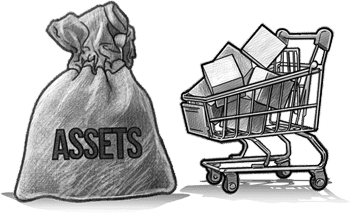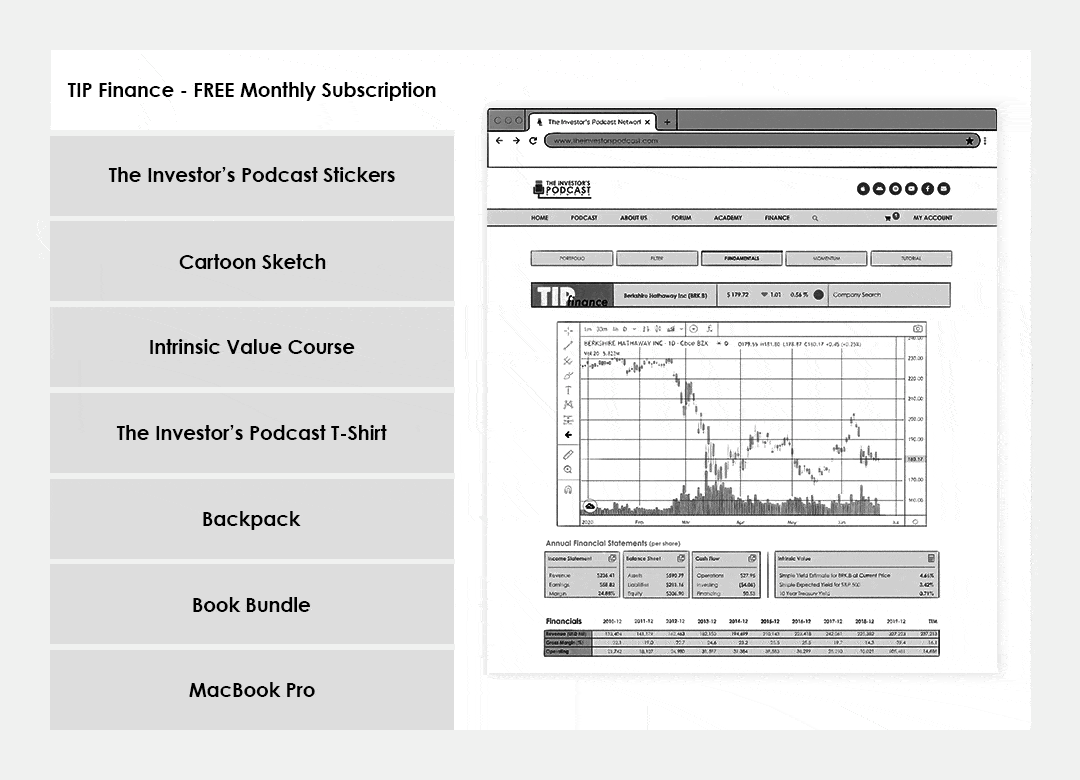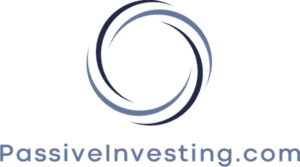5 Lessons From Rich Dad Poor Dad
8 September 2022

Hi, The Investor’s Podcast Network Community!
Welcome back to We Study Markets!
Important news coming out of the UK today: Queen Elizabeth, the longest-serving monarch, has passed away at 96 — Rest in peace 👑
The European Central Bank took a page out of the Fed’s playbook and raised its key interest rate by 75 basis points (0.75%). Like the Fed, this comes as an attempt to aggressively counter record levels of inflation, even as Europe faces an ongoing energy crisis and mounting fears of a recession.
Nothing new from Powell’s’ speech today as he further reiterated that the Fed remains committed to tightening financial conditions until its inflation goals are reached.
Stocks rallied modestly today following oversold conditions.
Here’s the market rundown:

*All prices as of market close at 4pm EST
Today, we’ll discuss mortgage rates hitting new highs, the bear market in bonds, “Freedom gas,” and 5 valuable lessons from Rich Dad Poor Dad.
All this, and more, in just 5 minutes to read.
Let’s do it! ⬇️
IN THE NEWS
🏠 Mortgage Rates Hit Highest Level Since 2008 (WSJ)
Explained:
- This week, mortgage rates hit a 14-year high, as measured by the average rate on 30-year fixed mortgages, which hit 5.89%, according to Freddie Mac.
- With the Fed set to raise its policy rate by another 0.75% this month, the ripple-through effects are likely to only push mortgage rates higher.
- Because the housing market is a key component of recent sky-high inflation reports, the Fed hopes that higher rates will continue to cool home demand and push prices down and, correspondingly, rental costs.
What to know:
- With the extremely low rates throughout the pandemic, mortgage re-financing became a popular option among homeowners and the lending companies who facilitated them. Demand for re-financings has dropped off a cliff in recent months.
- At the end of July, 85% of larger housing markets had seen price declines from their peaks, though prices remain elevated relative to borrowing costs.
- Still, high prices and ballooning interest costs have certainly raised the burden of buying a home, and likely, buyers will increasingly sit on the sidelines with hopes that conditions will improve.
🐻 Broad Bond Declines Yield Rare Bear Market (WSJ)
Explained:
- Markets have been emphatically dumping Treasuries, and even more so, corporate bonds this year, which leaves investors with little room for shelter.
- Typically, bond investors may hold both types of bonds with the hopes that they will offset each other’s risks. For example, government bonds perform well as a safe haven when the economy turns down and corporate borrowers are most at risk of default. 2022 has turned this approach upside down, though.
- The bond market appears to have peaked in early 2021, and since then, the Bloomberg U.S. Aggregate Bond Index has declined around 20%, marking a bear market.
What to know:
- Part of the reason this strategy has failed is that, historically, when the economy has begun to slow, the Fed cuts interest rates which supports government bond prices. This time around, in response to high inflation, the Fed is notably raising interest rates into a period of weakening economic activity.
- Although bonds are intended to stabilize portfolios, in the past 12 months, they’ve been more damaging than fully owning the S&P 500.
- Spreads between corporate bonds, (the additional yield required by investors) and ultra-safe Treasuries, have risen in 16 out of 35 weeks year-to-date. While the magnitude of the move has been painful, it’s not entirely shocking given how narrow yield spreads became in 2021 as investors at the time maintained a robust risk appetite.
⛴️ New Floating Gas Terminals Arrive To Ease Putin’s Grip On Europe (Bloomberg)
Explained:
- Two floating liquefied natural gas (LNG) terminals are currently being set up in a Dutch port, as Putin cuts off pipeline flows of the vital energy source. The terminals are hoped to enable Europe to process more natural gas exports from the U.S.
- Germany formerly sourced more than half of its gas from Russian pipelines, but now the country has chartered five of these floating specialized terminals.
- Building permanent onshore LNG import terminals from scratch is quite expensive and time-consuming. However, without them or floating terminal alternatives, it’s not possible to utilize LNG deliveries to provide much-needed electricity.
What to know:
- While floating gas terminals offer a faster and cheaper solution, their capacity is certainly more limited than onshore solutions. Regardless, the move offers a glimmer of hope to a continent that faces a stark energy crisis this winter, as natural gas demand surges to heat homes.
- Pitched as “Freedom gas,” the U.S. has sent record amounts of LNG to Europe this year.
BROUGHT TO YOU BY
Are you worried about inflation? There are few better ways to beat inflation than real estate, but even real estate isn’t all sunshine and rainbows. Learn about the 7 Red Flags for Passive Real Estate Investing from PassiveInvesting.com.
DIVE DEEPER: 5 VALUABLE LESSONS FROM RICH DAD POOR DAD

Patrick: I was wandering in the business section of a bookstore 25 years ago when a book with a purple cover and a silly title caught my eye. Somewhat skeptical, I pulled Rich Dad Poor Dad off the shelf and began reading.
I never would’ve guessed the book by Robert Kiyosaki would become one of the best-selling personal finance books of all time and influence millions of investors.
Frankly, I didn’t want to like the book. Kiyosaki comes across as the Tony Robbins of personal finance. But just as there’s a reason that Robbins has sold millions of books, there’s a reason that Kiyosaki has done so as well, and there are many lessons to be gleaned from his writings.
For those of you who haven’t had a chance to read it, the book revolves around the allegorical story of two fathers. The “poor dad” is Kiyosaki’s biological father who has a collection of academic degrees, works hard as an employee, but he never gains financial wealth.
The “rich dad” is his best friend’s father, a dropout that became a wealthy entrepreneur and owns a portfolio of real estate and profitable businesses.
The book highlights the two dads’ differences in mental models, and their conflicting advice on money and work.
The poor dad believes his son should get higher degrees and work for money as a salaried employee at a stable job.
The rich dad believes Kiyosaki should get a job to learn the skills required to be an entrepreneur. Instead of working his way up a corporate ladder, the rich dad asks, “Why not own the ladder?”

While the advice in Rich Dad Poor Dad has garnered some controversy, as has Kiyosaki himself, the book does offer several valuable lessons to anyone looking to improve their views on finances and wealth.
Here are our top 5 takeaways:
- The rich buy assets, not liabilities — Kiyosaki describes an asset as anything that puts money into your pocket, like a bond or rent from a house you own. Likewise, a liability is anything that costs you money because it loses value over time. Knowing the difference between the two is important. As Kiyosaki says, “The rich buy assets. The poor only have expenses. The middle class buy liabilities they think are assets.”
- Learn financial literacy — Not only does the book cover the best practices for personal finances, but it also does a great job of painting a picture of the end goal: financial independence. To be financially smart, Kiyosaki says you must master accounting, investing, markets, and even law. The more you broaden your knowledge base, the more financially successful you will be.
- Develop valuable skillsets — In a capitalist society, having practical and marketable skill sets are key to becoming wealthy. Kiyosaki recommends learning how to manage and invest money, lead a team, build and scale systems, and close sales. He stresses the importance of learning how to sell when he says, “there’s a reason successful books say ‘best-selling author,’ not ‘best-writing author.'”
- Master your emotions around money — The primary difference between the rich and the poor is in how they manage fear. Poor dad plays it safe and avoids risks to keep in his comfort zone. But as rich dad says, “often in the real world, it’s not the smart who get ahead, but the bold.” Kiyosaki says we must learn to manage our fears, cynicism, laziness, self-doubt, and arrogance around money.
- Make money work for you — When people truly begin to understand the importance of their personal finance decisions, they realize they are on a journey to holding enough wealth such that work becomes optional. There are a variety of ways to do this including having a rental portfolio, dividend and interest income, or owning your own business that produces cash flows. As Warren Buffett says, “if you don’t find a way to make money in your sleep, you will work until you die.”
Rich Dad Poor Dad is certainly an inspiration and can give a reader the impetus to get started on the journey to financial independence, entrepreneurship, and financial literacy.
Let us know what you think of Rich Dad Poor Dad.
Have you read it and has it influenced your investing life or career?
SEE YOU NEXT TIME!

That’s it for today on We Study Markets!
See you later!
If you enjoyed the newsletter, keep an eye on your inbox for them on weekdays around 6pm EST, and if you have any feedback or topics you’d like us to discuss, simply respond to this email.








